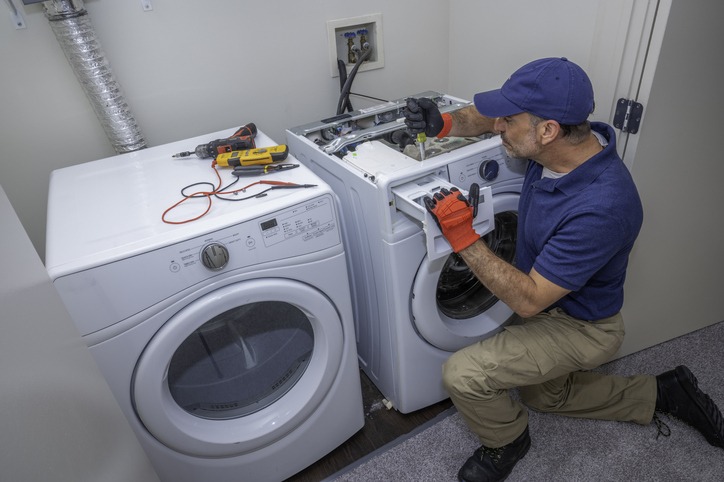A washing machine that won’t complete the spin cycle can be incredibly frustrating. You open the door to find wet clothes, and no matter how many times you hit start, nothing changes. But don’t worry! There are some simple troubleshooting steps you can take before calling in a technician or replacing parts. In this article, we will guide you through them to help get your washing machine back up and running soon.
Is the door closed properly?
A common reason why a washing machine fails to spin is that the door or lid is not properly closed. This may seem like a small issue, but it can cause the machine to stop working entirely. If you’re experiencing problems with your washing machine, one of the first things to check is the door or lid. Make sure it’s fully closed and latched, and that there are no obstructions preventing it from sealing properly. By ensuring the door or lid is properly closed before starting a wash cycle, you can avoid any unnecessary interruptions and keep your washing machine functioning smoothly.
Is the load unbalanced?
You may notice a loud banging sound during the spin cycle as the first sign of an unbalanced load. This happens when the weight of the laundry in the washing machine is unevenly distributed, causing the machine to vibrate or bang. In some cases, the washing machine may not start the spin cycle as a safety measure. This problem is more common with larger loads such as heavy towels or blankets.
To fix this, you can rearrange the items inside your machine to distribute them more evenly and try the spin cycle again.
Is the washing machine on an even surface?
If your washing machine isn’t level, the result will be an unbalanced load that can cause it to bang or vibrate. This is because the weight of the items inside won’t be evenly distributed if the appliance isn’t sitting on a flat surface. Even a small amount of unevenness can be enough to stop the machine from completing the spin cycle, so it’s important to check that your washing machine is sitting level on a flat surface.
If you find that the appliance is on an uneven surface, try adjusting the feet or legs until it’s level before running a new wash cycle. Doing this can help balance the load and ensure your washing machine is able to complete the cycle properly.
Are there any clogs in the drain hose or filter?
One cause of a washing machine not spinning may be a clog in the drain hose or filter. Over time, debris and dirt can accumulate in these areas, preventing water from draining properly and ultimately leading to a malfunctioning washing machine. To address this issue, locate the drain hose and filter and carefully remove any visible clogs or blockages. Running water through the hose and filter can also help to clear any remaining debris. By performing regular cleaning and maintenance of the drain hose and filter, you can help keep your washing machine functioning properly and avoid costly repairs.
Is your washing machine too full?
If you overload your washing machine, it may reach the spin cycle and be unable to finish the process. This is because most machines can’t detect that too much weight has been added to the load. As a result, when it reaches the spin cycle or completes it poorly, you will find soggy wet clothes inside instead of dry ones.
The only way to remedy this is to remove some of the wet clothes and rerun the spin cycle.
Is there a problem with the power?
One of the most common causes of a washing machine stopping mid-cycle is a loose power cord. Over time, the power cord can become worn or agitated, such as during bouncy spin cycles, and jiggle out of place. This can cause an interruption in the flow of electricity to your appliance, which will immediately stop its cycle.
Check that your power plug is connected and that it’s safe to turn it back on, and rerun the spin cycle.
Still haven’t identified the problem?
If you’re still having trouble identifying the issue with your washing machine after going through basic troubleshooting steps, don’t worry. It’s always a good idea to consult a professional technician or refer to the washing machine manual for more information. Remember, taking care of your washing machine regularly and addressing any issues promptly can help prolong its lifespan and save you money in the long run.
Need advice on the best replacement parts for your washing machine?
At Wayne’s Wholesale Spares, you can find a vast array of branded and generic replacement washing machine parts to help you repair your washing machine. We also provide helpful advice regarding all your part needs or recommend skilled local technicians who can get the job done right. Reach out now for reliable assistance!

